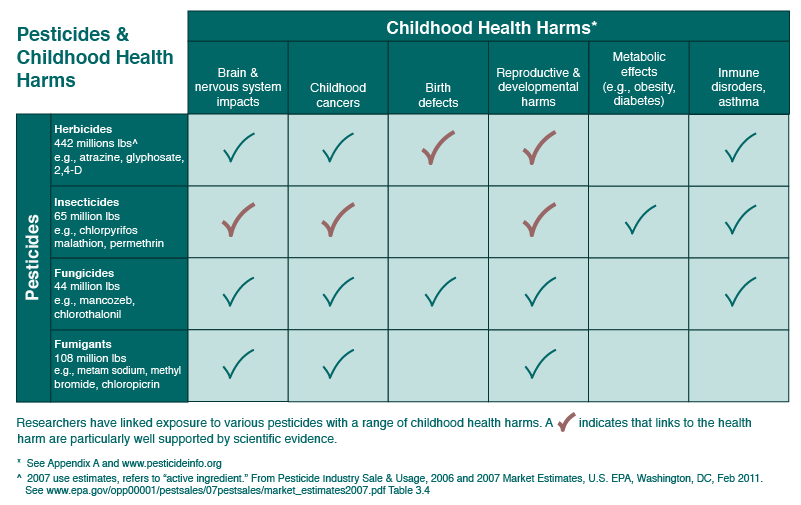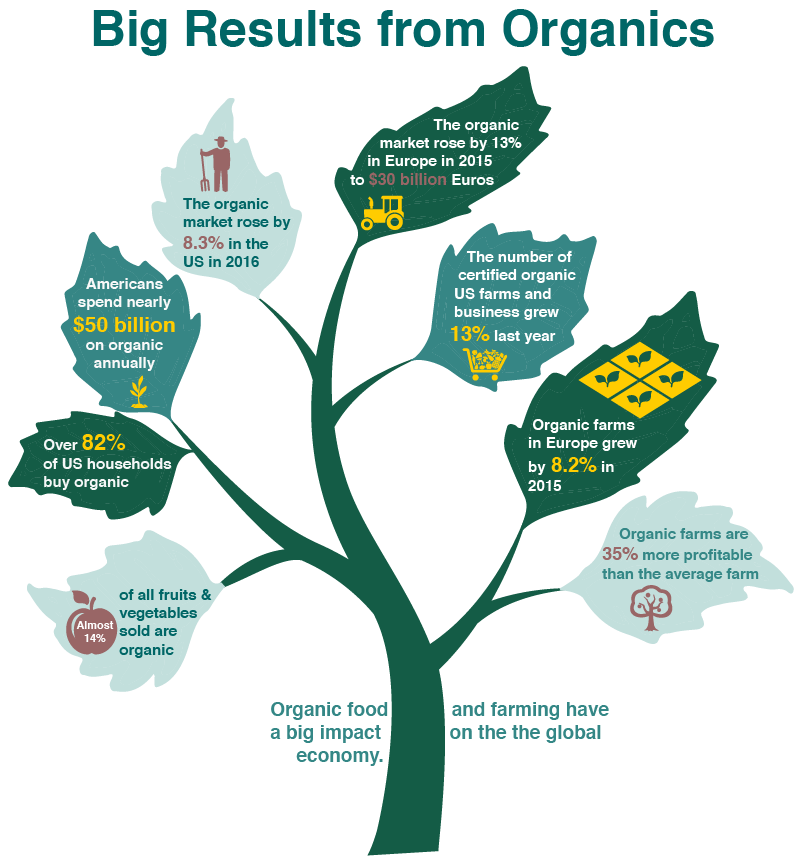According to food specialists at the United Nations, the World Health Organization, and the World Economic Forum, the implementation of an environmentally sustainable food system is an international priority for the development of global health and food security. As further light is shed on the immense environmental and health damage of conventional agriculture, international organizations are increasingly backing organic food systems.
The latest review of scientific research by the European Parliament has found that eating foods with high levels of synthetic pesticides was found to directly impact brain development across the general population. At least 100 synthetic pesticides currently on the market around the world are known to cause neurological disorders. An estimated 13 million IQ points are wiped from the European Union every year as a result of synthetic pesticides, costing an estimated $140 billion annually. Children are particularly at risk. Mothers who had traces of organophosphate metabolite – the basis for many synthetic pesticides – in their bodies during pregnancy were likely to have children with “adverse mental development at two years of age, attention problems at three-and-a-half and five years, and poorer intellectual development at seven years”.
Source: Pesticide Action Network North America (2012)
While exposure to synthetic pesticides has been known to cause many life-threatening health problems, ranging from reproductive issues to birth defects, they remain a significant part of our global food system. Why? Up to 40% of the world’s potential crop production is already lost annually because of the effects of weeds, pests, and disease. These crop losses would be doubled if existing pesticide use were abandoned completely. Lives would be lost and huge environmental damage incurred if there were a reversion to traditional farming methods. There’s no denying that pesticides are necessary to maintain global food security, especially during a time of unprecedented population growth; the key is to implement sustainable methods. The mounting evidence of health impacts associated with synthetic pesticide exposure is instead a clear indication of the failed testing and approval processes across the sector. It’s almost inconceivable to think that products containing chemicals that could seriously impair brain and body development could be approved after an average 12 years and $255 million spent in research and development for new synthetic crop care solutions.
Fortunately, organic agriculture and natural solutions in crop care are safe and sustainable alternatives to the modern system, which is dominated by synthetic agrochemicals. While the impact of organic food on human health is a relatively new field of research, initial studies compiled by the European Parliament show that organic foods can reduce the risk of allergenic disease and obesity, while easing the pressure of antibiotic resistance. Since organic systems of agriculture do not rely on synthetic inputs, the associated risks of exposure and environmental degradation are drastically reduced. Other benefits include reduced energy use, fewer emissions, and less nitrogen run-off. Consumers of these foods also tend to have healthier dietary patterns overall.
Source: Organic Trade Association (2017)
Informed consumers are living a healthier lifestyle and choosing organic foods, shaping a global market valued at $80 billion in 2015. Organic food sales in the United States reached a record-breaking $43 billion in 2016, accounting for more than 5% of total food sales. This is an 8.4% increase from the previous year, completely outstripping the 0.6% growth in the overall food market in the same period.
Growth, profit, and consumer demand are reaching unprecedented heights for businesses around the world who align purpose with profit by offering products and services that prioritize social responsibility and environmental protection. This is why we at Primal Group are driving a new green revolution with the neem tree. Neem-based products in agriculture will revolutionize the way our food is grown and processed by providing a non-toxic, cost-effective, and sustainable natural alternative to the damaging synthetic pesticides. As consumers become more informed about the health and environmental risks caused by the food they eat, the global community will shift to safe, organic methods of crop protection and production, with neem at the forefront.

